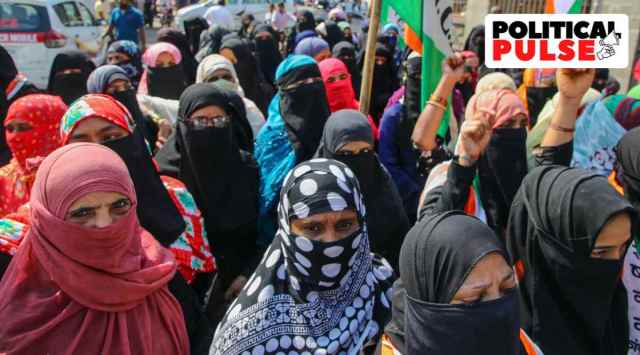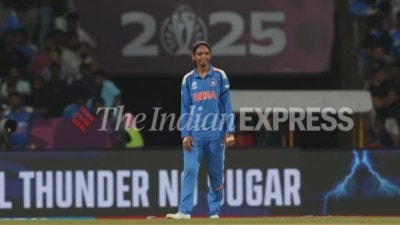Nothing to be afraid of, says Lalpura on Law Commission’s UCC call
The All India Muslim Personal Law Board has, meanwhile, said that it is in the process of formulating its feedback for the Law Commission.
 Muslim women along with city NCP unit staging an agitation at Mahatma Phule Wada against Karnataka government for restricting women on wearing Hijab in school and colleges. (Express file photo by Ashish Kale)
Muslim women along with city NCP unit staging an agitation at Mahatma Phule Wada against Karnataka government for restricting women on wearing Hijab in school and colleges. (Express file photo by Ashish Kale) Even as minority organisations have reacted to the Law Commission’s call for public feedback on the Uniform Civil Code (UCC) saying that the law itself will “destroy the social fabric’’ of the country, National Commission for Minorities Chairperson Sardar Iqbal Singh Lalpura has said that the process was “nothing to be afraid of’’.
“Article 44 is very clearly mentioned in the Constitution of India, which means that our forefathers had clearly envisioned the need for this law way back in 1950. The UCC is simply a compliance of our constitutional obligations. And this is not being done unilaterally, the government is consulting everyone before bringing in such a law – so there is nothing to be afraid of. As far as I know, the UCC will not impact or interfere with any religious ceremonies in any way. In the Sikh community, marriages take place under the Anand Marriage Act. But this Act does not make provisions for inheritance or divorce. As such, many Sikhs follow the Hindu Marriage Act,’’ said Lalpura speaking with The Indian Express.
The All India Muslim Personal Law Board has, meanwhile, said that it is in the process of formulating its feedback for the Law Commission.
“We have already once before presented our feedback to the Law Commission in 2016, and the Commission had then said that at least for 10 years, UCC should not be implemented. What we feel is that the latest public notice is nothing but a political stunt by the present government to create a situation which they will encash ahead of the 2024 parliamentary elections,’’ said executive member of AIMPLB Dr Qasim Rasool.
“The UCC is neither necessary nor does it benefit our country in any way. India is a multi-religious multi-cultural nation which must respect its diversity. The Constitution enshrines religious freedom as a fundamental right and the UCC interferes with this right as Muslim personal law is a part and parcel of our religious freedom. This is not only about Muslims but all other communities… In any case, UCC in a manner already exists in
the country in the form of special marriages act, the inheritance act etc – only these are optional,’’ added Rasool.
Rasool’s sentiments are echoed by the Jamiat Ulama-i-Hind secretary Jamiat Niaz Ahmad Farooqui, saying: “Even before the law commission had asked for feedback, which we had given and the commission had accepted. But no development has taken place since. Our position remains the same. The UCC is not a practical solution and is an attack on India’s diversity.’’
Imam Mohsin Taqvi of the Shia Jama Masjid in New Delhi said that the people of the country should be given the freedom to practise their religion and their traditions and called the law “unnecessary’’.
General Secretary, the Evangelical Fellowship of India, Reverend Vijayesh Lal said that the evangelical church bodies will only consider giving feedback on the law, once they receive a draft to examine.
- 01
- 02
- 03
- 04
- 05































